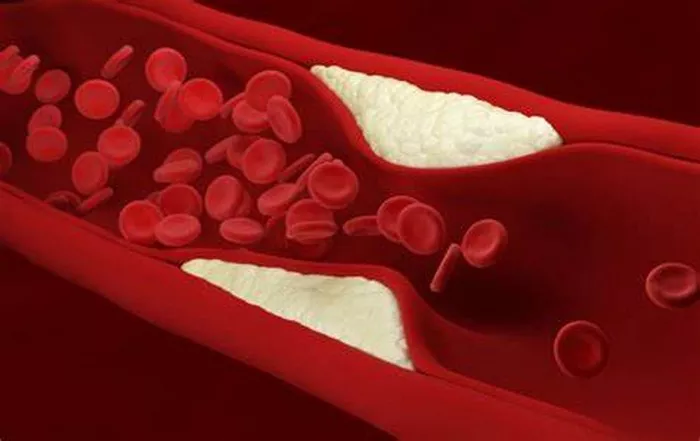Heart artery plaque, also known as atherosclerosis, is a common condition that affects the arteries supplying blood to the heart. It occurs when fatty deposits, cholesterol, and other substances build up on the inner walls of the arteries, leading to narrowing and hardening of the arteries. This article explores the various factors and mechanisms that contribute to the development of heart artery plaque, as well as the implications for cardiovascular health.
What is Heart Artery Plaque?
Before delving into the causes, it’s essential to understand what heart artery plaque is and how it develops. Plaque is a mixture of substances, including cholesterol, calcium, cellular waste products, and fibrin (a clotting material). Over time, these substances accumulate in the inner lining of the arteries, forming a thick, hard deposit that can obstruct blood flow.
Factors Contributing to Heart Artery Plaque
Several factors contribute to the development of heart artery plaque, including:
1. High Cholesterol Levels: Elevated levels of LDL cholesterol (often referred to as “bad” cholesterol) can lead to the buildup of plaque in the arteries. LDL cholesterol can penetrate the arterial walls and trigger an inflammatory response, attracting immune cells that contribute to plaque formation.
2. Smoking: Tobacco smoke contains harmful chemicals that damage the inner lining of the arteries, making them more susceptible to plaque buildup. Smoking also contributes to high blood pressure and reduces the levels of HDL cholesterol (the “good” cholesterol) that helps remove LDL cholesterol from the arteries.
3. High Blood Pressure (Hypertension): Chronic high blood pressure puts strain on the arterial walls, causing them to thicken and narrow over time. This increased pressure can promote the formation of plaque and increase the risk of heart disease.
4. Diabetes: People with diabetes are at a higher risk of developing heart artery plaque due to elevated blood sugar levels. High glucose levels can damage the blood vessels and accelerate the formation of plaque.
5. Obesity and Sedentary Lifestyle: Being overweight or obese, combined with a lack of physical activity, can contribute to the accumulation of plaque in the arteries. Physical inactivity can also lead to other risk factors such as high cholesterol and hypertension.
6. Unhealthy Diet: Consuming a diet high in saturated fats, trans fats, and processed foods can raise LDL cholesterol levels and contribute to plaque formation. Conversely, a diet rich in fruits, vegetables, whole grains, and lean proteins can help lower the risk of plaque buildup.
7. Genetics and Family History: A family history of heart disease or atherosclerosis can increase an individual’s susceptibility to developing heart artery plaque. Genetic factors can influence cholesterol levels, blood pressure, and other cardiovascular risk factors.
8. Age and Gender: As people age, their risk of developing heart artery plaque increases. Men are more likely to develop plaque at a younger age than women, although the risk for women increases after menopause.
Mechanisms of Plaque Formation
The process of plaque formation involves several interconnected mechanisms:
1. Endothelial Dysfunction: The inner lining of the arteries, called the endothelium, plays a crucial role in regulating vascular function. Endothelial dysfunction, characterized by impaired nitric oxide production and increased inflammation, contributes to the initiation of plaque formation.
2. Cholesterol Accumulation: LDL cholesterol can infiltrate the damaged endothelium and become trapped in the arterial wall. Macrophages, a type of immune cell, engulf the LDL cholesterol and transform into foam cells, which are key components of early plaque formation.
3. Inflammation and Immune Response: The presence of LDL cholesterol and other debris triggers an inflammatory response in the arterial wall. Inflammatory cells such as macrophages, T cells, and cytokines contribute to plaque growth and instability.
4. Calcification and Fibrosis: Over time, the plaque undergoes calcification, where calcium deposits accumulate within the plaque structure, making it harder and more brittle. Fibrous tissue also forms, contributing to plaque stability but also increasing the risk of rupture and thrombosis.
Diagnostic and Treatment Approaches
Detecting and managing heart artery plaque is essential for preventing complications such as heart attacks and strokes. Diagnostic techniques such as coronary angiography, CT angiography, and intravascular ultrasound can assess the extent and severity of plaque buildup.
Treatment strategies for heart artery plaque focus on lifestyle modifications, medications, and, in some cases, invasive procedures:
1. Lifestyle Modifications: Adopting a heart-healthy diet, engaging in regular physical activity, quitting smoking, and managing stress can help reduce plaque buildup and improve overall cardiovascular health.
2. Medications: Statins, blood pressure-lowering medications, antiplatelet drugs, and medications to control blood sugar levels (for diabetes) are commonly prescribed to manage risk factors associated with plaque formation.
3. Interventional Procedures: In cases of severe plaque buildup and obstructed blood flow, procedures such as angioplasty with stent placement or coronary artery bypass grafting (CABG) may be necessary to restore blood flow to the heart.
Conclusion
Heart artery plaque is a complex condition influenced by a combination of genetic, lifestyle, and environmental factors. Understanding the causes and mechanisms of plaque formation is crucial for developing effective prevention and treatment strategies. By addressing risk factors, adopting a healthy lifestyle, and working closely with healthcare providers, individuals can reduce their risk of developing heart artery plaque and improve their heart health overall.

